
Congress wasn’t going to pass the Matthew Shepard Act by righteousness alone. Nor should it. We’re big fans of (smart) open debate even when we’ve already declared our side. (In case you’re just joining us, we’ve been adamant supporters of adding sexual and gender identity to the list of protected classes.) Which is why we welcome the battle back from conservatives, who hope the Senate will back down from passing the Local Law Enforcement Hate Crimes Prevention Act.
The one argument we’re tired of, however, is the religious one — that somehow punishing criminals for violent acts will target priests who preach against homosexuality. It won’t. If a pastor’s sermon doesn’t call for incitement to violence (a crime by itself), then Father O’Henry has nothing to worry about.
Then there’s the free speech argument: Punishing someone for why they committed a crime violates their First Amendment rights. And of course, the “special victims” argument: Making “protected classes” of victims means criminals are punished more for targeting minorities than, say, straight white men. (Funny how conservatives are advocates of criminals only when it fits their anti-gay agenda.)

But here’s one argument we’re willing to hear: The double jeopardy factor.
How about we take this to the next level?
Our newsletter is like a refreshing cocktail (or mocktail) of LGBTQ+ entertainment and pop culture, served up with a side of eye-candy.
The Matthew Shepard Act does not simply add additional punishment to a criminal sentence; it creates a whole new class of crime. Which means a defendant who is acquitted on a murder charge in state court could face a second round of federal charges — for committing a hate crime alone, but for the same act.
Some, like David Freddoso in the National Review, argue this scenario amounts to double jeopardy, and thus violates our constitutional rights against being charged with the same crime twice. He explains: “If someone is acquitted of an alleged hate crime at the state level, this bill allows federal prosecutors to haul him into federal court for the same alleged act, based only on evidence that ‘hate’ motivated the crime that the jury says the defendant didn’t commit. This makes use of a loophole in the constitutional protection from double jeopardy.”
As Rep. James Sensenbrenner (R, Wis.) explained on the House floor: “At the first trial, the person is acquitted of the violent crime, and at the second trial the person is convicted of the hate crime, meaning what the defendant says during the commission of that crime. And that ends up criminalizing free speech, because the actual act of violence the jury determined that the defendant was not guilty, but because of what the defendant said during the commission of the crime aimed at the victim, the person is convicted of saying that. That is where we have the First Amendment slippery slope. And I think if this ever happens, you will find this bill declared to be unconstitutional as a violation of the First Amendment in the blink of an eye.”
It’s a reasonable argument — and one any hate crimes defendant with the cash for a decent legal defense will make on appeal.
Don't forget to share:



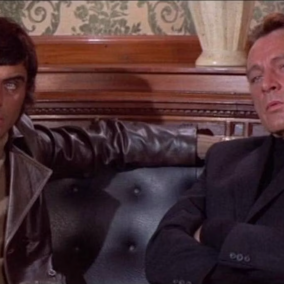
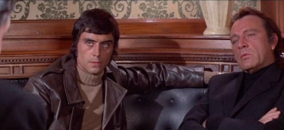


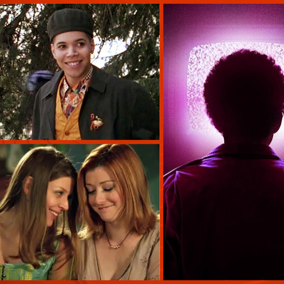

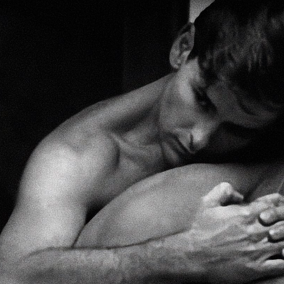
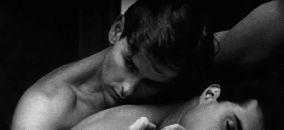

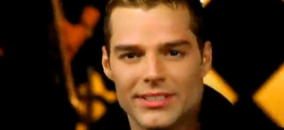






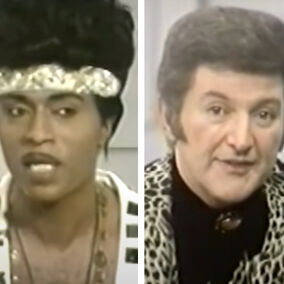
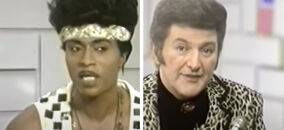
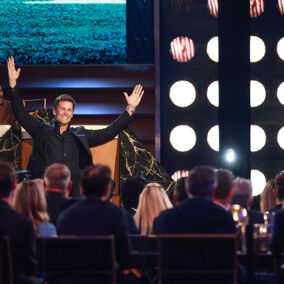

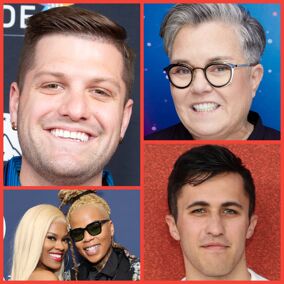



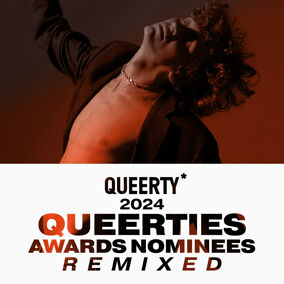











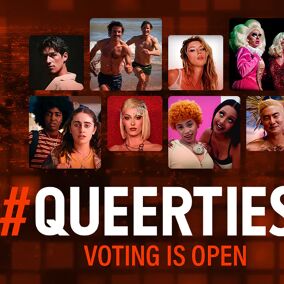

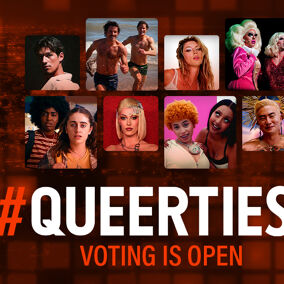

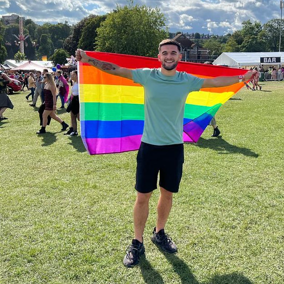
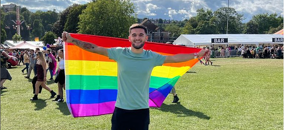
























bigjake75
This is where we need to be careful and not let our demand for deserved justice become an injustice. Things can go too far. And this government is more than capable of going after all our rights. We must always stop any effort from trampling on the constitution.
dgz
sorry, queerty — that’s not a good argument. it’s not double jeopardy because prosecution is being carried out by separate sovereigns. this is already the case for dozens of crimes that violate both state and federal statutes.
second, a hate-crimer can’t be found guilty of murder if he’s already been acquitted by a state court — it’s res judicata (an issue that’s already been decided). proving a hate crime isn’t possible without an *attendant crime.* it’s an incorporated part of the offense. for example, in the Shepard case, the dudes could’ve been acquitted for murder in state court, but if the robbery or agg assault had been proven, a hate crime could be charged. if they were acquitted on all charges in state court, however, there would be no basis for a hate crime under federal law.
lastly, a verdict of not-guilty doesn’t bar cases for wrongful death, etc., so anyone who gets off should still expect to see some more of our wonderful judicial system 😉
John Santos
I thought the Republican party was the law and order party? Or do they just star on “Law & Order”? Secondly, I find it amusing that Rep. James Sensenbrenner would be concerned about trampling on the consitution, considering the Republican party used that document as toliet paper over the last eight years.
paulied
First, I would assume that the hate crime charge would be attached to the initial indictment. If the defendant is found not guilty, double jeopardy would attach to both the violent crime and the special hate crime, so neither could be re-filed. Second, the option of federal prosecution exists only if the state, through the bigotry of its own officials, is deemed to be derilict in their prosecution of the case. Third – and most important – hate crime legislation is nothing new. These laws have been on the books for years. Why then are people suddenly coming up with all these issues to challenge them. Clearly, hate crime legislation is not the problem; it is only the potential inclusion of our LGBT brothers and sisters in the protection from hate crimes that has riled up these opponents – which begs the question… WHY?
Alec
1) Separate sovereigns doctrine. You can be prosecuted by state and federal authorities. The constitutional limit doesn’t attach.
2) The example provided is inapposite. An acquittal for murder doesn’t mean that one isn’t guilty of a lesser charge, or a charge with completely different elements.
Double jeapordy is only going to attach where all the facts necessary to establish a conviction are the same (the so-called “same elements” test under Blockbuster). The additional of a single additional (or different) fact undercuts the double jeapordy claim (and all this is relevant really only for multiple punishments, but I digress).
Anyway….not an issue. A creative attempt, though; funny how they didn’t think this one up during the early debates of this act. I guess they needed something a bit more creative to justify their vile opposition to this one.
Shaun
@dgz:
DGZ has his ducks in a row…double jeopardy is nowhere near as simple a concept as the general public, and apparently some members of congress, imagine it to be….thanks, DGZ, for bringing some needed clarity to the discussion!
mbb
@dgz: I agree with you, this is a terrible argument. Queerty should be careful about accepting what the NRO says. The legislation actually includes specific protections against this, and says the feds can prosecute only if the state governments cannot or will not, or if the state prosecution fails to “vindicate the federal interest” (i.e. if the state half-asses it) in protecting people from hate crimes.
NROers mostly want to convince everyone that the hate aspect of hate crimes legislation is fake, and that we’re somehow policing criminals’ thoughts.
Of course, most crimes are defined by the mental status of the criminal. Did they intend to do it? Did they mean to bring about a specific result? Were they acting in conscious disregard of the laws? What motive did they have for it? Was it premeditated?, etc., etc.
Rob
Sensenbrenner’s description of this legislation is incorrect. The hate crime is not “what the defendant says” during an act of violence. The hate crime is the act of violence itself. The defendant’s speech can be evidence that the act of violence was a hate crime, but the speech itself is not the prohibited conduct.
I think it was irresponsible of Queerty to post this item without doing some more research. We shouldn’t be parroting the right wing’s misinformation.
atdleft
@dgz: True. From what I understand, “double jeopardy” doesn’t apply when one’s tried in a different jurisdiction. This new “double jeopardy” argument against the hate crimes bill may sound more reasonable than the outright “Keep Bigotry Legal!” argument, but it’s still sloppy and lacks logic.
dgz
@Shaun: aw, shucks. thanks, you made my day. 🙂
@mbb: true! but of course, we know that they don’t actually care what the bill says, they only care about what they can convince people it says.
@Rob: exactly. strange that the opposition seems to completely forget about the office of legislative counsel, or that hate crimes have existed for years on the basis of other identities…
@atdleft: amen. that’s the “separate sovereigns doctrine” that alec mentioned — provided proper jurisdiction exists!
and from a policy standpoint, hate crimes legislation make a lot of sense: hate crimes are designed to provoke fear in an entire community, so they warrant special consequences. consider it our progressive “war on terrah.”
and may i say: wow! queerty posters sure know their legal theory — very awesome.
andy_d
@dgz: Thank goodness someone knows what’s what. Thank you.
Percival
@dgz: Srsly…did everyone who posted on this story go to law school? Thanks for the clarification, everyone!
Alex
Regardless of the validity of the double jeopardy argument, this law wouldn’t create such a double standard. The hate crimes statute is already on the books, this just expands those same protections.
Smokey Martini
@dgz:
I’m not knowledgeable in any law theory and even *I* knew that the ‘double jeopardy’ argument was complete poo.
Actually, I suppose part of my knowledge has to do with my being Canadian and the fact that hate crimes laws is a non-issue here. It just makes sense. There’s no reasonable argument against it!
HYHYBT
I’m all in favor of double Jeopardy! Higher stakes, tougher material, and no commercial break, what’s not to like?
Laura in Cabo
I completely agree with everyone that all of the rationales given by the conservatives are based on the LGBT inclusion in the hates crime laws, not on the wisdom (or lack thereof) of the laws themselves. That’s too bad. I’m a brand new site member, with a legal background as well. I’m a civil libertarian to the core with very little trust in prosecutors. With a couple of limited exceptions, I have always opposed any form of hate crimes laws. I like the basic, old-fashioned criminal justice system. I don’t think penalties should be based on the victim’s status (unless they are especially vulnerable becaus of age or diability). I am opposed to enhanced penalties because the victim is a cop.
As a woman, and a former criminal defense attorney who knows quite well that rape is a crime of hate much more than sex, I’ve felt left out of the hate crimes laws on that one. And I think the Matthew Sheperd nomenclature is oxymoronic. The murderers plead out and got LWOP. Had they gone to trial in WY they would have lost and gotten death. What am I missing in the result here?
I think property crimes that target someone because of their status make more sense. Example: graffiti. It causes more harm to a homeowner to have the side of his house painted “faggots and dykes go to hell” then some gang symbol on a randomly chosen property. The former would make the victim feel violated and fearful. The latter, pissed that he has to paint it over.
Double jeopardy. Technically it’s not. But that doesn’t mean it’s fair in a due process sense. Prosecutorial discretion is abused all the time.
All of this said, the horse is out of the barn, and we shouldn’t be left out of the running. I’d prefer all the hate crimes laws be repealed except as mentioned. But that’s not going to happen.
G. T. Blackwell
I, for one, am torn on this issue. Though it’s not double jeopardy, I don’t think you can consider a persons motive to be another crime in addition to one they’ve already been convicted of. If we convict a person of murder, we don’t charge them for a second crime if the murder was extensively planned. We simply call it first degree murder. But we can charge them if the murder was done because the murderer knew the victim belonged to any of the groups listed in this bill? I just cannot get behind that.
But I also feel that groups like these deserve some level of protection. That’s why we have anti-discrimination laws. But bills like these do send a signal to state and local judicial systems that these types of crimes are not to be swept under the rug.
I can’t decide on this. Tell me what you think. Leave a comment here:
http://radicalrationalist.wordpress.com/2009/05/07/weigh-in-the-matthew-shepard-act/
Stan Scott
The state has every right to distinguish between acts based on WHY they were committed. This “why” distinguishes manslaughter, second-degree murder, and first-degree murder. Everybody’s heard of “malice aforethought”, right?